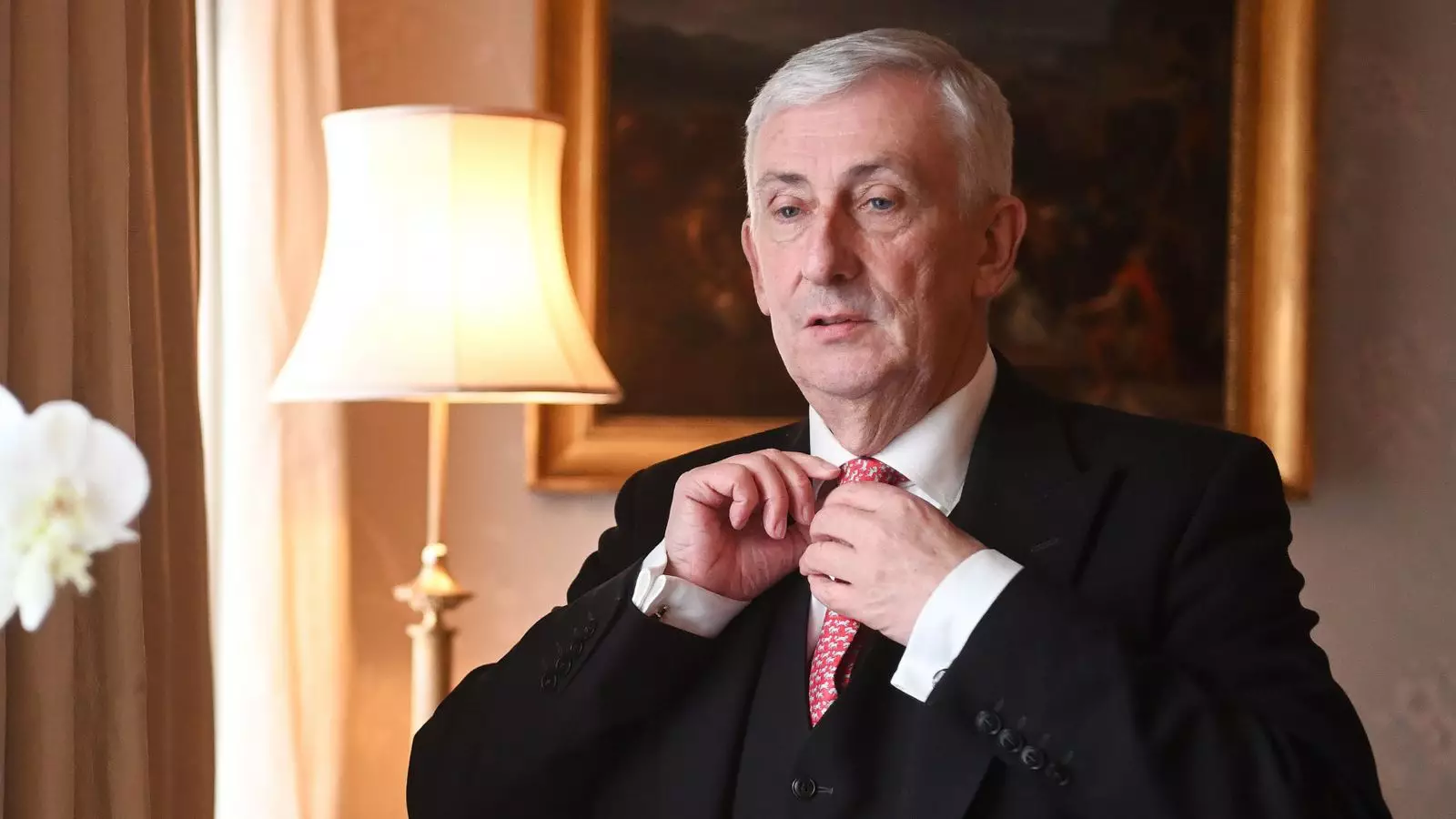The recent controversy surrounding Commons Speaker Sir Lindsay Hoyle has sparked intense debate and finger-pointing within the UK Parliament. Accusations of Labour trying to influence the Speaker’s handling of a debate on Gaza have thrown the Speaker’s future into uncertainty. The SNP and Tory parties have both raised concerns about potential collusion between Sir Lindsay and Labour, leading to chaos and disorder in the chamber.
SNP Westminster leader, Stephen Flynn, has called on Sir Lindsay to “come clean” about his interactions with the Labour leadership prior to the motion on Gaza. The SNP believes that there was a “stich up” between the Speaker and Labour, which has been vehemently denied by the Labour party. The Tories, similarly, have accused Sir Lindsay of lack of transparency and have demanded that he provide details of his meetings with Labour leaders.
The fallout from the debate on Gaza has resulted in a growing number of MPs signing a motion of no confidence against Sir Lindsay. The decision to allow a vote on a Labour amendment to an SNP motion was seen as controversial, as opposition parties rarely get the opportunity to amend opposition motions. This move incited anger among Tory MPs, who viewed the Speaker’s decision as biased in favor of Labour.
Rumors have emerged that Labour was trying to influence the Speaker’s decision, as they were facing a potential defeat had their amendment not been chosen. Health minister Maria Caulfield raised concerns about Labour’s motives, suggesting that they sought to sway the Speaker’s decision in their favor. While Labour denied these allegations, tensions continued to rise in the aftermath of the chaotic debate.
Sir Lindsay has faced mounting pressure to resign, with MPs questioning his impartiality and judgment. Critics have accused him of allowing the debate to be “hijacked” and turning it into a political spectacle. While he has apologized for his actions, many are still skeptical of his ability to lead the House effectively. The Speaker’s upcoming meetings with party leaders are seen as crucial in determining his future in the role.
As the dust settles on the Commons Speaker debacle, calls for transparency and accountability have grown louder. The need for clarity on the Speaker’s interactions with political parties and his decision-making process has become paramount. The integrity of the parliamentary system hinges on the Speaker’s ability to uphold fairness and impartiality in all proceedings.
The chaos that unfolded in the House of Commons serves as a stark reminder of the complexities and challenges of parliamentary democracy. The Speaker’s role as a neutral arbiter of debate has been called into question, sparking a heated debate on the future of parliamentary proceedings. As the dust settles, the need for transparency, accountability, and fair judgment remains at the forefront of the political landscape. It is essential for the Speaker to address the concerns raised and restore trust in the integrity of the House of Commons.


Leave a Reply